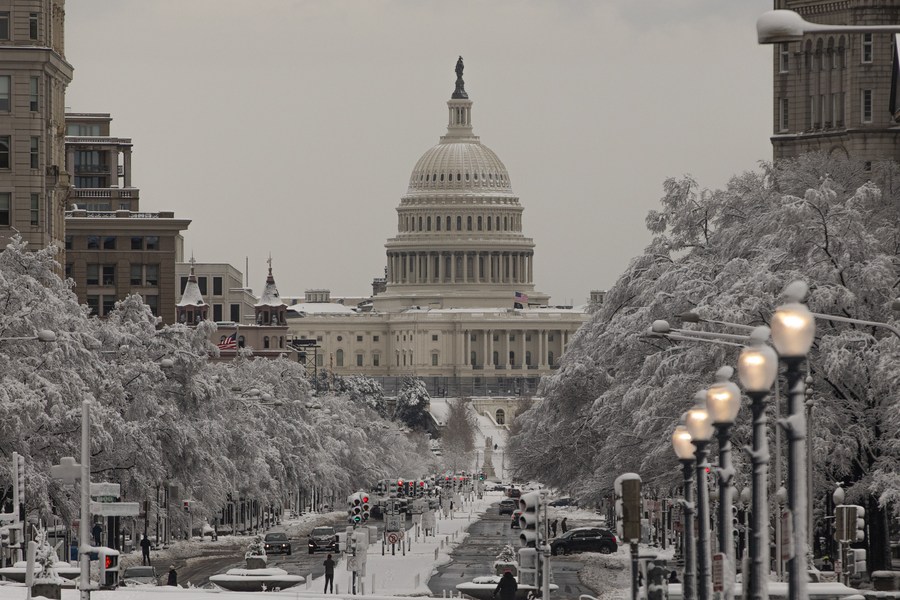US media: A leaderless struggle for democracy
chinadaily.com.cn | Updated: 2022-08-02 14:25

"The central fact about the democratic world today is that it is leaderless," wrote Bret L. Stephens, an American writer covering foreign affairs and domestic politics in a recent article in The New York Times.
"Now we have a failing American president, a timorous German chancellor, a British prime minister about to skulk out of office in ignominy... and the assassination of Japan's dominant political figure," said Stephens.
The situation is now catastrophic and Stephens noted that the world has been stumbling into four distinct but mutually reinforcing crises, each compounding the other.
According to the article, the first crisis is international credibility. Stephens mentioned how the withdrawal of the US' forces from Afghanistan last year telegraphed their government's incompetence and weakness. Besides that, there is an imminent nuclear crisis with Iran, in which the US president Biden seems to have no policy other than negotiations that are on the cusp of failure.
The second crisis is economic credibility. Stephen mentioned the crisis occurs when leaders make confident predictions, but in the end, the result turns out to be catastrophically wrong. Similar to a prediction Biden had last year, he insisted that inflation was "temporary,".
Furthermore, the leaderless free world could result in crises in poorer countries. The last time the world had a global recession, the result was the Arab Spring, civil wars in Syria and Libya, the rise of the Islamic State, migrant waves into Europe and populist revolts that included Brexit and the election of Donald Trump. Stephens predicted that all this could happen on a vastly greater scale, a year or two from today.
The fourth crisis is liberal democracy. Stephens said that democracies failed at delivery. "People who have spent their entire lives in stable democracies often assume that freedom is everyone's supreme value. The depressing lesson of the past 20 years is that it isn't." Stephens concluded: "The spiking commodity prices, crime and strict border control put the best of what the liberal democracy stands for at risk."
























